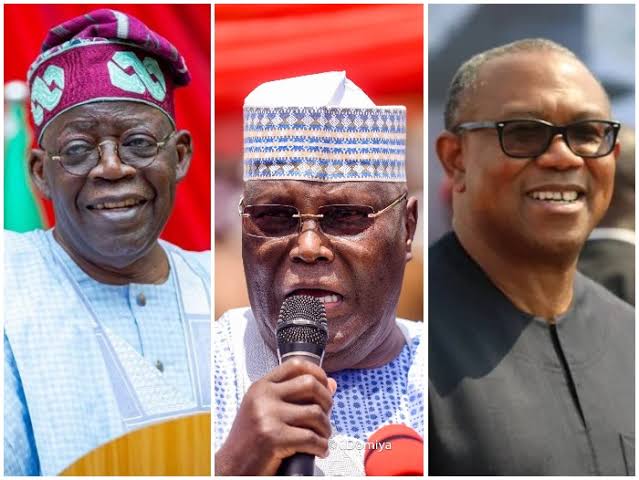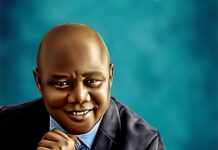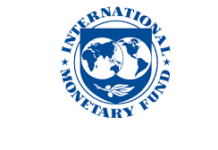Opposition Parties and the Politics of Palliatives
By Nafisat Bello
Over the years, Nigerians have been facing unprecedented hardship ranging from insecurity, recession, inflation, impact of COVID-19 pandemic, etc. Now, the words on everybody’s lips today are ‘subsidy’ and ‘palliative.’
It is ridiculous that a dubious figure of 70 million litres of fuel are consumed daily by Nigeria’s estimated 200 million people and it is the government that has to pay to subsidise each of the litres.
Subsidy was introduced by the then Head of State, Gen Olusegun Obasanjo, in response to the first oil crisis that occurred in 1970s. He did that to cushion the rising global oil prices. He thereby promulgated the Price Control Act of 1977 to control and regulate how service providers fix the price of their goods and services and curtail the arbitrary charge fixed by market leaders.
However, whether to continue subsidising fuel has been part of the public debate since the early 1980s, making it a tough decision for both the civilian and military governments to put an end to the exorbitant costs. Fuel subsidy lingered for long with attendant complaints.
It continued until during the government of former president Muhammadu Buhari who after years of funding the subsidy decided to put an end to it. President Buhari signed the Petroleum Industry Act in 2021 and the law puts an end to fuel subsidy with effect from 2022.
And since Buhari did not make provisions for subsidy paymemt in the 2023 Budget beyond June, President Tinubu came and declared that his predecessor’s subsidy removal policy had come to stay.
Immediately that announcement was made on May 29, the speed with which the price of Premium Motor Spirit (PMS) popularly called petrol skyrocketed was unimaginable. This gave rise to the increase in prices of other essential commodities and services which has gradually increased the suffering of the masses.
The government justified its decision because intermediaries in the petroleum products supply chain take advantage of the government’s policy of subsidising the importation of petroleum products for the benefit of Nigerian people only to swindle the Nigerian government of billions if not trillions of naira over the years. President Tinubu decided to finish what the previous government started by enforcing the removal of the fuel subsidy which took effect immediately.
And surprisingly, in a short period of time, the government has been able to save up to N400bn, the amount that would have gone into the pockets of those crooks behind the fuel subsidy. Now, that can be perceived as a positive response to removing the subsidy.
To cushion the suffering of the people however, the issue of palliative became the talk of the town.
Read Also:
So, on the 13th of July, President Tinubu revived the Cash Transfer Programme (CTP) of his predecessor. Buhari had written a letter to the National Assembly seeking the approval of a fresh $800m loan from the World Bank for the purpose of transferring the sum of N5, 000 per month to 10.2 million poor and low-income households for a period of six months. The Tinubu administration therefore sought to take advantage of it and increase the money to N8,000 to 12 million households.
The Politics of Palliatives
While the All Progressives Congress (APC)-led administration is struggling with public opinion and looking for ways to mitigate the impact of the subsidy removal policy, the opposition figures have been trying to take advantage of the situation to further incite the people against the ruling party.
Since the announcement on palliatives was made, opposition figures in the People’s Democratic Party (PDP) and the Labour Party (LP) have been falling on themselves to attack the intent and score cheap points.
Through his Special Assistant on Public Communications, Mr. Phrank Shaibu, the PDP presidential candidate, Atiku Abubakar said, “The so-called palliatives that Tinubu seeks to share with the poor are just another avenue to divert public funds.
For years, the Nigerian government has rejected calls to publish the list of the beneficiaries of the so-called palliatives but this has never been done because it is all a scam and the reinvention of old tricks to use public funds as a subterfuge for vote buying.
“Let no one make any mistakes about it, the planned palliative is Trader Moni 2.0. The scheme is nothing but a means to use public funds to prosecute political campaigns and objectives.”
In the same vein, the LP presidential candidate, Peter Obi, also chastised the method in which the president is trying to curtail the economic crisis caused by fuel subsidy removal. He also said that, providing of the N8,000 palliative is not enough to cushion the effect on the subsidy removal.
“The N8,000 to 12 million households is not enough to cushion the effect of the fuel subsidy removal, almost every parent needs the money across the country because of the level of poverty in the nation.
“I was telling my people to find a way on how to enrol for this N8,000 because almost everyone needs it, both parents and teachers need the 8,000.”
Meanwhile, both the PDP and LP presidential candidates also promised to remove fuel subsidy if they won the February election. Observers are therefore wondering if there won’t be similar consequences for their own brand of subsidy removal.
Nevertheless, distributing the sum of ₦500 billion to 12 million out of an estimated 43 million vulnerable households in Nigeria, is like a drop in the ocean. So, looking at the question; what should the government do with the ₦500 billion loan? Rather than distributing such whooping sum to those imaginary vulnerable group of households, the government should instead invest more on critical sectors like transportation, education, health, where it will at least benefit all. Like for instance, after speaking to some residents in Abuja, additional palliatives in form of subsidised transportation are being advocated.
They advised that the government should procure 60-seater buses for mass transit which could purchase as many as 8,000 units. Taking this into consideration will definitely ease the cost of transporting people, goods, and services from one location to another.
It is important that President Tinubu has decided to review the policy with a view to finding more comprehensive ways of taking care of Nigerians in the midst of the ongoing suffering. Government has to find a better way to do it, not just throwing tokens at the problem.
















